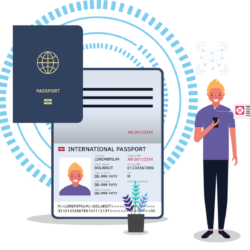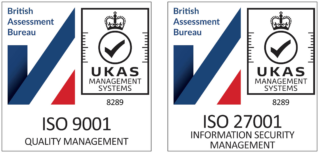Take a look at our latest Blogs
Is your recruitment agency protected against fraudulent identity documents used for Right to Work?
Tony Machin
April 29, 2019
As a diligent Recruiter, you no doubt have a process in place for making Right to Work checks and you’re probably well aware of the risks of employing illegal workers. But the first step in any Right to Work process is to ensure that the documents you’re seeing are genuine.
TrustID help support compliance for ADVANCE
Sarah Croft
April 10, 2019
Lots of businesses talk about compliance but at ADVANCE, a leading provider of employment, contractor and freelancer solutions, compliance is the core of everything they do, including during the on-boarding of over 40,000 contractors and freelancers.
Our view of fraudulent identity documents in 2018
Tony Machin
March 11, 2019
If you follow our blog, you’ll know that at TrustID, we’re really keen on gathering and analysing data around document checks, including trends across different industries and fraudulent document types. With another year of data captured, in this blog, we summarise our annual findings for 2018 and compare them with trends from 2017.
Making Right to Work checks: what happens when they go wrong?
Tony Machin
November 19, 2018
As you probably know, if you’re employing staff in the UK, you must confirm their immigration status before they start work. This means checking their passport, visa, and/or another immigration document to confirm they have the Right to Work in the UK. So, what they thought were the biggest risks of getting checks wrong.
Overcoming 7 challenges of Right to Work checks
David Park
September 13, 2018
If you employ people in the UK, you are probably aware of the legal requirement to check that all potential and existing employees, regardless of their nationality, are eligible to work through Right to Work checks. In this blog, we look at 7 challenges that Right to Work checks bring to a business and how technology can help overcome them.
Why do we need to do pre-employment immigration checks on UK recruits?
Tony Machin
June 21, 2018
As you probably know, every employer has a legal duty to prevent illegal working and is required to undertake pre-employment immigration checks on all staff to ensure that they have the right to work in the UK. But if your recruits claim to be British or EU nations, do you really need to make Right to Work checks?
Why introduce electronic identity document checks if you don’t have to?
David Park
June 6, 2018
We work with two main types of business: those that have to introduce some form of identity validation technology – due to enforced compliance requirements – and those who choose to introduce it – perhaps because they are worried about making checks in the face of high staff turnover or fall into a ‘high-risk’ sector. you can benefit from electronic identity scanning, not just to drive compliance and find fraudulent documents, but in ways that you may not expect…
Home Office Guidance on Identity Document Validation Technology (IDVT)
Tony Machin
May 17, 2018
In March 2018, the Home Office published guidance for employers on ‘Identity Document Validation Technology’ (IDVT). At TrustID, we’re proud to have been part of the consultation period which helped to shape this guidance, alongside scanner manufacturers, other leading IDVT suppliers and representatives from the Police and UK Immigration team.
Helping recruitment businesses improve Right to Work compliance with identity checks.
Sarah Croft
April 25, 2018
We caught up with the team at Anderselite recently who have introduced TrustID Cloud to all their recruitment consultants to allow them to check identity documents from anywhere. Recruitment business, Anderselite, was established in 1984. They specialises in supplying staff to the construction, civil engineering, rail and IT sectors. Operating from six regional offices across the UK, they support 500 clients and deal with over a thousand contractors every week.
Smarter identity checks to satisfy ‘Know Your Customer’ (KYC) requirements
Tony Machin
March 12, 2018
As you probably know, anti-money laundering (AML) regulations state that your first step should be to perform an appropriate level of identity check to satisfy ‘Know Your Customer’ (KYC) requirements. This most often starts by the person being asked to produce some form of official documentation to prove their identity.








